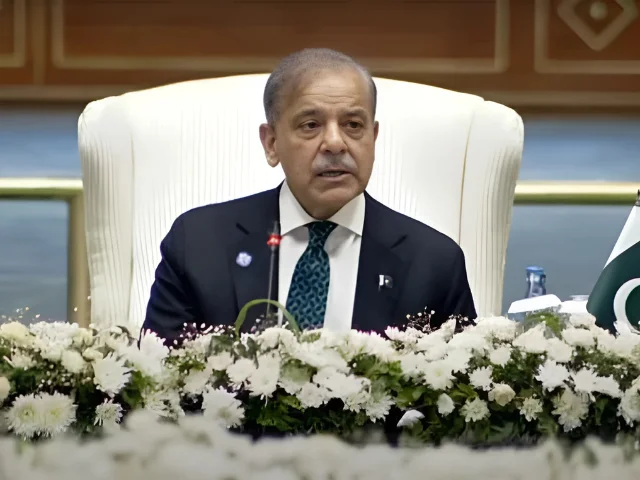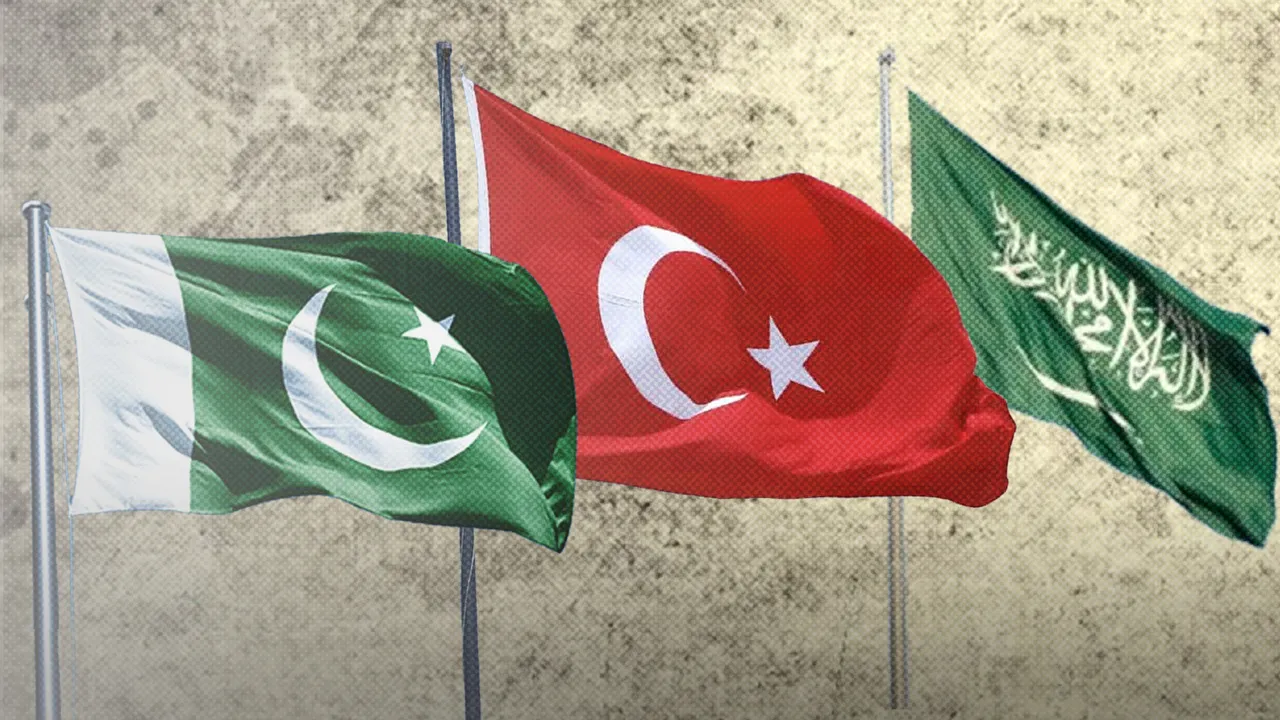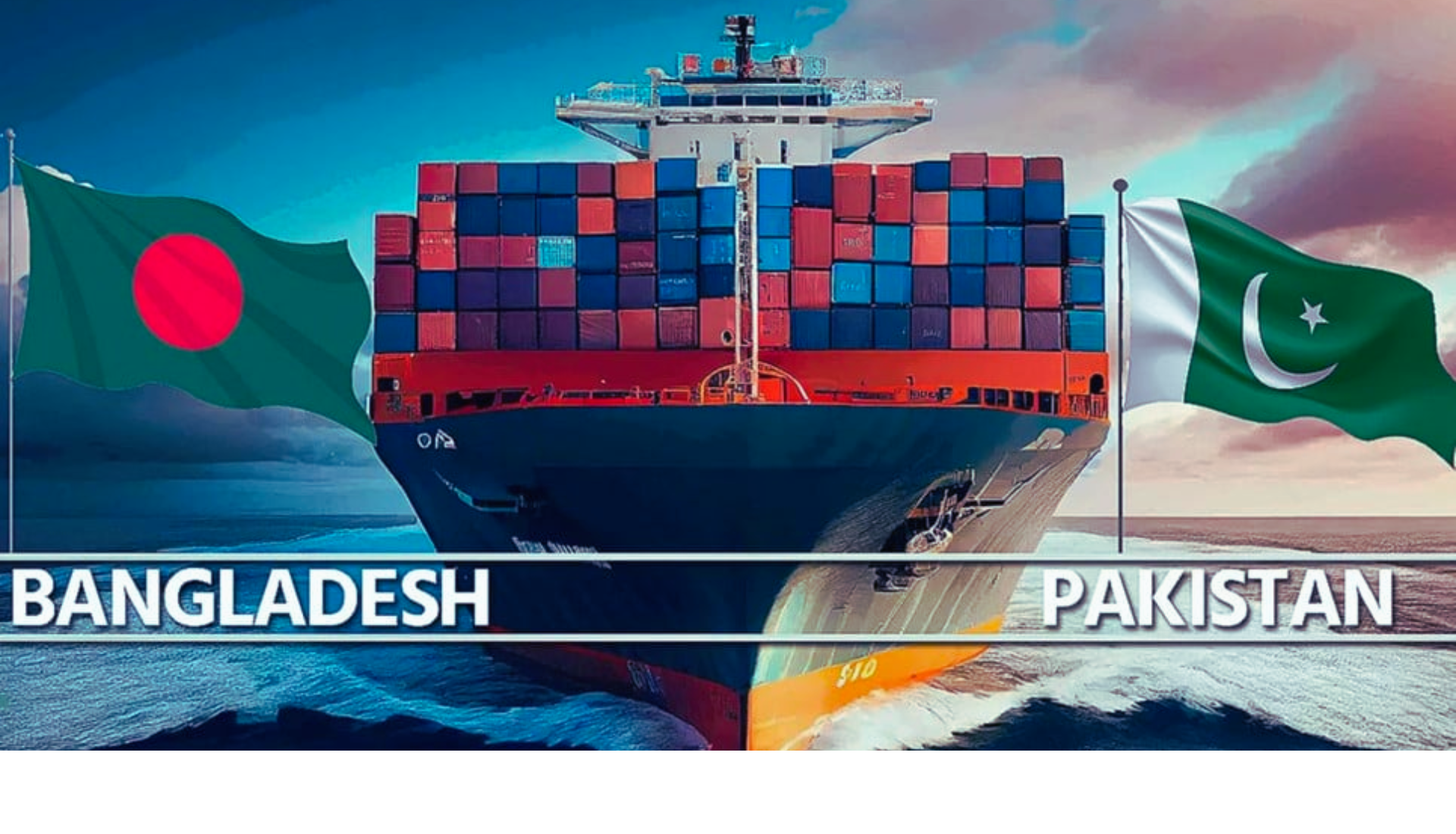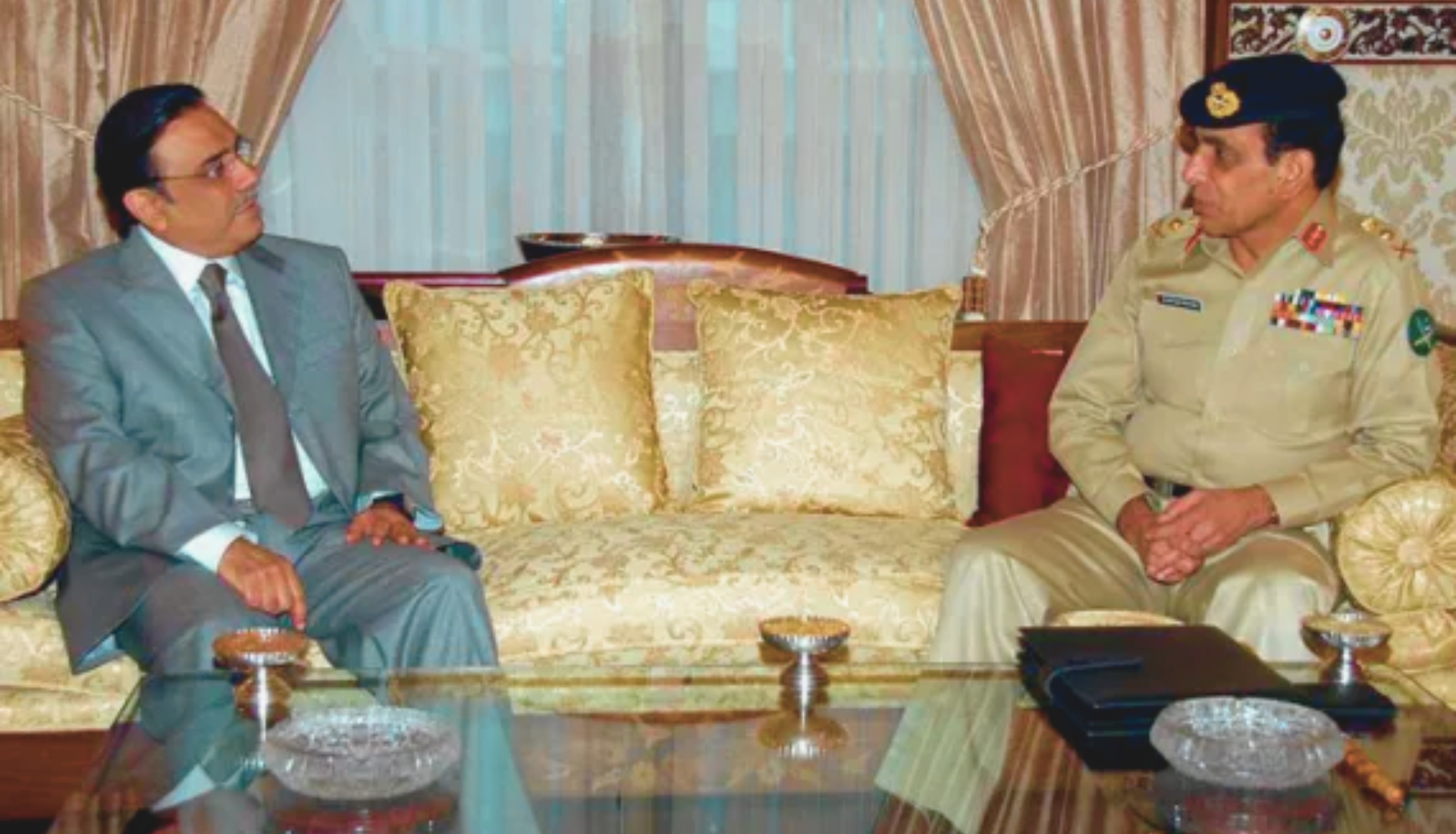Prime Minister Shehbaz Sharif addressed the Shanghai Cooperation Organisation (SCO) summit. He stated that the use of Afghan soil for terrorism must stop. He urged stronger regional cooperation to address shared challenges.
Addressing the 23rd session of the Council of Heads of Government on Wednesday, he welcomed the leaders of SCO member states and emphasised the importance of strengthening regional ties for long-term economic growth and stability, as reported by Express news.
“Regional cooperation and connectivity are essential for sustainable development,” Shehbaz Sharif said in his opening address. “We must seize the opportunities available to provide a better standard of living and amenities for our people.”
Shehbaz Sharif noted that SCO member countries make up 40% of the world’s population, highlighting the organisation’s potential to drive global progress.
He also urged the need to focus on tourism, green development, and energy sectors.
He also stressed that authorities should prioritize efforts to eradicate poverty, considering it a moral and economic issue.
The summit, held at Jinnah Convention Centre, brought together leaders from key member states, including Chinese Premier Li Qiang, Russian Prime Minister Mikhail Mishustin, and counterparts from Tajikistan, Kyrgyzstan, Belarus, Kazakhstan, and Uzbekistan.
Iran’s Vice President Mohammad Arif and India’s External Affairs Minister S. Jaishankar were also in attendance, with Mongolia participating as an observer.
Also See: Pakistan Simmers: Bannu Attack Stoke Tensions with Afghanistan
Security, Climate, and Economic Cooperation
Shehbaz Sharif outlined several key areas of focus for the summit, including economic cooperation, regional stability, and climate change.
He pointed out that climate change had heavily impacted Pakistan, referencing the devastating 2022 floods that displaced millions and caused severe damage to agriculture and infrastructure.
He urged SCO nations to devise a collective strategy to mitigate these effects and strengthen regional resilience.
“The impact of climate change is being felt worldwide, and Pakistan has been particularly hard-hit,” Shehbaz Sharif said.
“We must work together to address these challenges,” he added.
Afghan Stability and Terrorism Concerns
Addressing the issue of Afghanistan, Prime Minister Shehbaz Sharif stressed the need to prevent the use of Afghan soil for terrorism, calling for international attention to humanitarian assistance in the country.
“Afghanistan plays a crucial role in regional stability, but terrorism from Afghan soil must stop,” he said.
He also highlighted opportunities for cooperation in transportation and energy sectors within the region.
Shehbaz Sharif reiterated Pakistan’s commitment to the China-Pakistan Economic Corridor (CPEC), now entering its second phase, as a significant contributor to regional development.
He called the Belt and Road Initiative a key driver for economic growth across the region.
Poverty Reduction and Social Development
In his address, Shehbaz Sharif also focused on poverty alleviation, describing it as both an economic and moral issue.
He urged SCO members to prioritise efforts aimed at eradicating poverty through addressing its root causes and expanding economic opportunities.
The prime minister concluded by thanking the heads of state for their participation in the summit, expressing hope that the discussions would lead to productive outcomes for all member states.
This news is sourced from The Express Tribune and is intended for informational purposes only.






